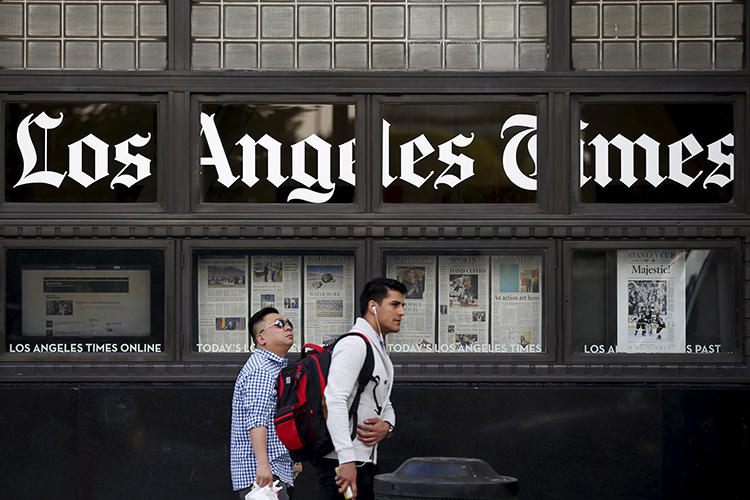New York, July 17, 2018 — U.S. District Judge John F. Walter today vacated a temporary restraining order that he had issued three days earlier prohibiting the Los Angeles Times from publishing details of a sealed plea agreement that had mistakenly been made public. The decision came in the wake of an outcry from media organizations and press freedom groups, including an amici letter to the U.S. 9th Circuit Court of Appeals in San Francisco, filed yesterday by Reporters Committee for Freedom of the Press, and joined by 58 other organizations, including the Committee to Protect Journalists.
Judge Walter had issued a temporary restraining order on July 14 prohibiting the Times from publishing details of the plea agreement, which had erroneously been filed publicly on PACER, an online court document database. The judge also ordered the removal of any details about the agreement from an article already published by the newspaper. The defendant, a former police officer, stood accused of working with the Mexican Mafia, and had accepted a plea deal in exchange for his cooperation in a federal investigation.
“Censorship is the hallmark of authoritarianism and one of the most extreme measures governments use to control speech,” said Alexandra Ellerbeck, CPJ’s North America program coordinator. “That is why U.S. courts have long determined that under the First Amendment the ability to impose prior restraint is extraordinary limited. We believe that the actions of the U.S. District Court in not only prohibiting publication but also ordering the L.A. Times to remove information already published violated constitutional protections. We are relieved that the District Court has reversed its decision and vacated the order.”
